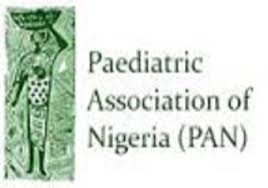Like most Nigerian elections, pundits and political analysts will opine that the upcoming 2015 national elections will prove to be a watershed event in the history of the country. Every election since 1960 has been tagged “pivotal”, “make or break” for the country. There has always been a fear that every election is probably the last. A lot of people over time have suggested that every national election is about the corporate existence of Nigeria as one country.
I remember, as a kid growing up in Lagos, how elections were always rowdy and unpredictable in terms of public safety and well-being. I still recall seeing a man almost set on fire during the so-called “we tie” days in Lagos and Western Nigeria. The country has come a long way since then - several elected civilian governments interspersed with military coups and interventions, and even a civil war thrown in there for effect.
2014 marks 100 years since the amalgamation of Southern and Northern Nigeria by Lord Frederick Lugard, the British colonialist. The country, though plodding has survived and somehow thrived as one indivisible nation not because of, but in spite of its sometimes shaky and selfish political leadership. Next year’s national election will indeed be a landmark for the country. Without dwelling on governance failures and other stumbles of the country since 1960, I will for the purposes of this write-up list the most important drawbacks to Nigeria’s fulfilment of its potential as the most consequential black nation in the world; weak governance, poor physical infrastructure, failing educational system and a failed healthcare system.
For Nigeria to emerge as an economically powerful and culturally relevant leader on the African continent, it must in my opinion as a matter of urgency fast-track its developmental agenda post 2015 national elections. I am aware of commendable moves by the present government to address urgent matters like the Boko Haram terrorist insurgency and electrical power problems. I am, however proposing that we can walk and chew gum at the same time. A national emergency needs to be declared in both the educational and health sectors to start with.

I recently wrote an opinion piece after the passing away of Chief Segun Okeowo, the historically consequential student leader of Ali-Must-Go fame, calling for an overhaul and reform of the educational system. The other emergency that should be declared is in the healthcare sector. The specific specialty area of medicine I am advocating to be addressed immediately is emergency medicine and trauma. I believe a reform in this area could become a trigger for an overhaul of the healthcare system in general. The country a few years ago allocated N161.8 billion annually representing about 3.5 per cent of the national budget to the healthcare sector. This is grossly inadequate compared to the World Health Organisation’s (WHO) recommendation that 11 per cent of a country’s budget should be dedicated to its healthcare sector. The Ministry of Finance in 2011 had stated that about $200 million is spent annually by Nigerians who travel to India alone for outbound medical tourism.
Apart from existing evidence of the difference that building a competent emergency medical services infrastructure and programme could lay the groundwork for a take-off of Nigeria’s healthcare system in general, I chose to address and focus on this medicine specialty area because of my experience doing global work for New York University in resource poor settings like Ghana and Nigeria. I was commissioned a few years ago to help audit and reposition a broken down healthcare system in Akwa Ibom State. It was during this intensive year’s long assignment that the glaring lack of an emergency medical response system dawned on me.
I remember witnessing a ghastly motor accident in Uyo and immediately suggesting that we call 911 (an emergency response phone system in the USA). Passers-by responded that we do not have such a system. That reminder helped fuel my resolve to fight for the establishment of a functioning emergency medical services in the country. My group has recently implemented some emergency medical services training for doctors and nurses in and around its catchment areas in the Niger Delta financed by ExxonMobil/Mobil Producing Nigeria and Nigerian National Petroleum Corporation (NNPC). As welcome as this effort is from the private sector by the community, we need a national government action on this crucial healthcare area. We need a private public cooperation to succeed in this project.
Emergency medical response is critical to address with the recent data suggesting that the primary cause of death in developing countries like Nigeria is cardiovascular diseases with trauma-related injuries coming a close fourth. The rates of diabetic comas, heart attacks, strokes and emergencies due to childbirth are rising in Nigeria and sub-Saharan Africa. The inability to respond to emergencies in Nigeria has made the lack of adequately trained emergency medical services or even first responder personnel an urgent priority. These problems can be addressed with the building of an effective emergency medical services system that focuses on both primary and secondary care.
A well-functioning emergency medical services system must include human resources, training, communications-network, facilities, public education and other components. This system ought to consolidate an integral part of an effective healthcare delivery system. I am confident that with political will and determination, the above system can be created and established in a matter of months.
The recent successful handling and containment of Ebola Virus spread by the government and Nigerian healthcare providers is evidence that with the same effort we can establish a world class emergency medicine response system. In practical terms, to carry out the above I propose the following policy moves - a requirement that all healthcare providers obtain minimal certifications as “first responders”. This should be extended to National Emergency Management Agency (NEMA), Federal Road Safety Commission (FRSC), fire service workers, policemen and all agencies whose staff offer rescue services to the public. Promotions of doctors and nurses should take this training into consideration. Training for these certifications should be inculcated in the syllabi of all nursing and medical schools. The setting up of state and national nerve centres will coordinate emergency responses. Finally, the appointment of an emergency response czar to formulate and implement what will become the largest emergency response unit in sub-Saharan Africa. The above will be a baby step in repositioning Nigeria as a leader among emerging nations.
ABUJA: Training Schedule for Basic Life Support BLS, Pediatric Advanced Life Support (PALS), Advanced Cardiovascular Life Support ACLS, First Aid, CPR, AED
PORTHARCOURT: Training Schedule for Basic Life Support BLS, Pediatric Advanced Life Support (PALS), Advanced Cardiovascular Life Support ACLS, First Aid, CPR, AED
LAGOS: Training Schedule for Basic Life Support BLS, Pediatric Advanced Life Support (PALS), Advanced Cardiovascular Life Support ACLS, First Aid, CPR, AED
.jpg)



